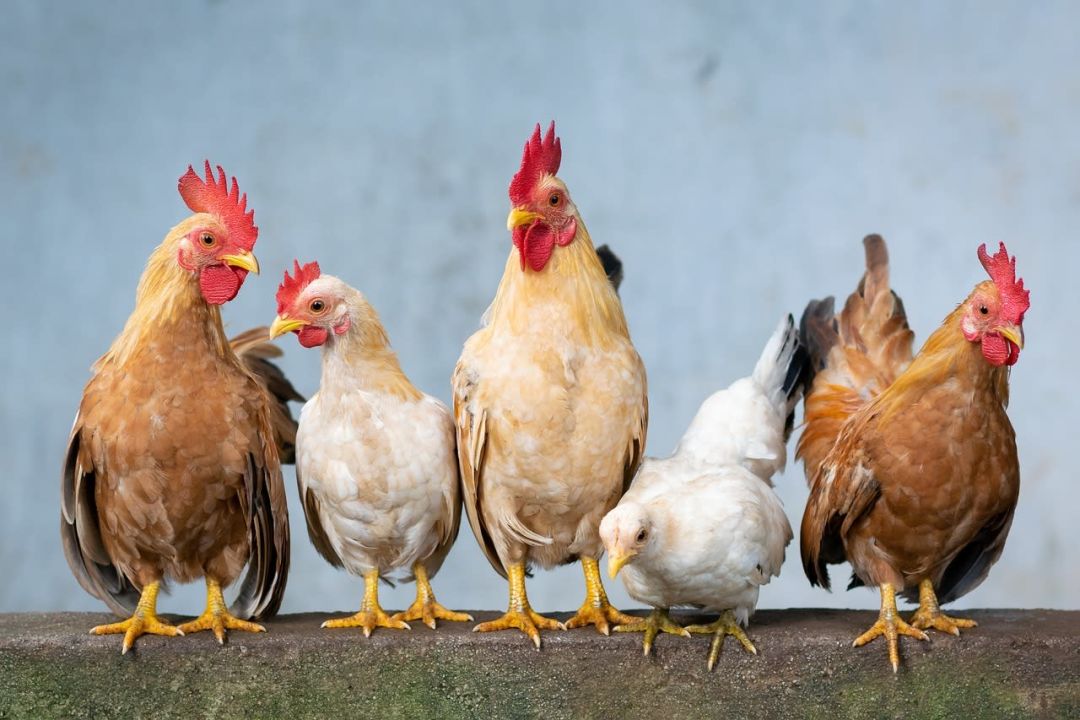Cold-Hardy Chicken Breeds: The Best Birds for Northern Climates

Image: Xuân Tuấn Anh Đặng / Pixabay
Have you ever wondered how some chickens thrive in freezing temperatures while others struggle to stay warm? If you live in a colder region, choosing the right poultry breeds can make all the difference in keeping your flock healthy and productive. From their thick feathers to their resilient nature, certain breeds are built to handle the chill. This guide explores the best cold-hardy chicken breeds for northern climates and tips to help them thrive even in the harshest winters.
What Makes a Chicken Breed Cold-Hardy?
Different breeds of chickens show varying degrees of resistance to cold temperatures. Cold-hardy poultry breeds feature thick feather coverage, small combed features, and sturdy body structures that hold heat within their bodies. Chickens from breeds, including Plymouth Rock and Wyandotte, demonstrate outstanding survival traits in severe winter conditions without requiring additional heating. Their smaller comb and smaller wattle reduce their cold exposure and minimize their chances of frostbite.
Selecting suitable poultry breeds for northern climates is vital for maintaining poultry populations in cold areas. These breeds allow birds to survive while continuing to produce eggs during the winter breeding season.
Pro Tip: All cold-hardy breeds require secured shelters to survive open-air conditions. Your chicken coop should have accurate ventilation to prevent moisture from forming, as excessive dampness remains a bigger threat than frigid temperatures.
Top Cold-Hardy Poultry Breeds for Northern Climates
Several breeds emerge as leading examples of cold-hardy poultry breeds because of their excellent resistance and ability to adapt to harsh conditions. Here are a few favorites:
- Plymouth Rock: Due to their friendly nature and efficient egg production, Plymouth Rocks remain highly popular breeds for chilly areas. Their thick feathers protect chickens while providing warmer insulation.
- Wyandotte: The Wyandotte chicken draws attention because of its elegant, laced feathers and solid construction, which makes it highly resistant to harsh conditions. The hen is ready to lay eggs continuously throughout each season, including winter.
- Orpington: This quiet companion breed thrives well in frigid temperatures. This winter-hardy breed stays well protected from the cold by their thick plumage, though they excel at producing eggs and rearing chicks.
- Brahma: Due to their rare status, Brahmas receive the title "King of Chickens." These bigger birds have feathered limbs that serve as excellent defenders against frigid temperatures.
- Chantecler: The Canadian Chantecler maintains its petite combs and wattles, lowering the chance of frostbite in winter, particularly in Canadian weather.
How to Prepare Your Coop for Winter
All types of chickens depend on well-prepared coops for their survival in winter. To combat drafts, begin your insulation process by installing wall panels, but make sure your system has sufficient ventilation. Straw and wood shavings are deep bedding materials that can work as winter insulation and moisture controllers.
Heat lamps or panels should be installed only during rare freezing nights. Excessive heat to the coop brings unsteady temperatures that prove more damaging to chickens than constant frigid conditions.
Feeding and Watering Tips for Cold Weather
Maintaining proper feeding and water distribution for your flock becomes more complex when winter arrives. Cold weather requires more energy for body heat generation, so switch your diet to high-protein feed during winter. Distributing scratch grains within their coop leads to active behaviour, creating heat for your birds.
Water is another critical factor. A water heater installed at your chicken feeder prevents freezing, so inspect the equipment periodically to ensure an uninterrupted water supply. Even among cold-hardy breeds, dehydration remains a life-threatening condition during winter months.
Pro Tip: Put apple cider vinegar in your chickens' water dispenser. Drinking water with apple cider vinegar enhances their immunity and maintains their health over winter months.
Health Considerations for Cold-Hardy Breeds
Cold-hardy poultry breeds contain winter-oriented genetics, yet they do face medical challenges. The risk of frostbite occurs frequently among chickens that carry big combs and wattles. A protective layer of petroleum jelly should be applied to vulnerable spots of your chickens because of extreme cold.
Damp air and insufficient ventilation maximize the risk of respiratory infections in birds in winter. The housing area needs regular cleaning and dry maintenance, and your chickens should be checked for illness symptoms, especially coughing and signs of fatigue. Responding early is essential for maintaining health within your flock.
Why Cold-Hardy Breeds Are Worth the Investment
Anyone living in northern temperatures should pick poultry breeds that tolerate cold weather. Cold-hardy birds prove their productivity and ability to produce a steady egg supply despite cold weather. These breeds need minimal upkeep making them ideal for newer farmers and those with experience.
The Plymouth Rock breed and Wyandotte and Orpington varieties guarantee success in your chicken farming efforts. Properly caring for and preparing your birds for the cold will ensure their success at any temperature.
Conclusion
Proper breed selection makes all the difference in selecting chickens suitable for northern winter environments. With their dense feather structure and natural resilience, these chickens maintain excellent cold tolerance throughout winter egg production seasons. An adequately prepped coop, with nutritional adjustments and health checks, allows your flock to thrive during the coldest winter months.
Winter poultry farming begins with these cold-hardy Chicken Breeds for your new journey. Your winter poultry keepers will survive the cold season while successfully laying multiple fresh eggs for your homestead each year.